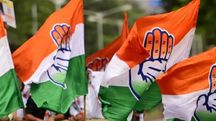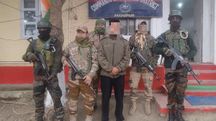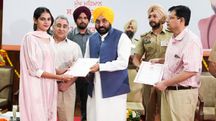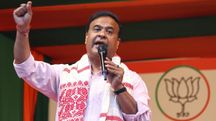Nagaland: GPRN/NSCN addresses fallout from National Tatar Hoho Session, reaffirms commitment to Naga political process
GPRN/NSCN President 'Gen.' (Retd) MB Neokpao Konyak and Ato Kilonser Alezo Venuh explained that the session's outcome exacerbated the rift within the organization, dampening public trust—critical to the Naga political movement.
 Nagaland: GPRN/NSCN addresses fallout from National Tatar Hoho Session, reaffirms commitment to Naga political process
Nagaland: GPRN/NSCN addresses fallout from National Tatar Hoho Session, reaffirms commitment to Naga political processThe collective leadership of the GPRN/NSCN has issued a press statement addressing the significant fallout from the extraordinary session of the National Tatar Hoho held on April 21, 2024. The session, which was deemed crucial for the survival of the people's government, led to notable internal discord and public controversies involving senior national leaders.
GPRN/NSCN President 'Gen.' (Retd) MB Neokpao Konyak and Ato Kilonser Alezo Venuh explained that the session's outcome exacerbated the rift within the organization, dampening public trust—critical to the Naga political movement. The leadership acknowledged that despite substantial efforts to prevent this political mishap, the discord has resulted in the loss of a significant faction within the GPRN/NSCN.
This development has also disappointed apex Naga Civil Societies, Gaon Buras (GBs), Tribal Hohos, and leaders who have supported the Naga cause unconditionally. However, the GPRN/NSCN emphasized a continued strong consensus and commitment to the Indo-Naga issue, based on the Agreed Position negotiated transparently with the Government of India (GoI).
The statement highlighted the 'Status Paper'—a product of these negotiations—as representing the collective will of all Nagas, including those in Manipur, Arunachal Pradesh, and Assam. The GPRN/NSCN affirmed that this agreement is "irrevocable and irreversible."
Recalling the fresh ceasefire agreement signed on April 27, 2012, following the impeachment of former chairman S.S. Khaplang, the leadership noted that the agreement, signed by then MHA Joint Secretary (NE) Shambu Singh and GPRN/NSCN representatives, was a decisive move for the Naga national workers.
The GPRN/NSCN stated the historical significance of the 'Naga Self-Determination' agenda set on January 10, 1929, as a testament to the enduring Naga nationalism and its accompanying hardships. Despite ongoing challenges, the leadership expressed hope that the Nagas will continue to support the WC, NNPGs, in achieving an honorable political solution with the Government of India.
Copyright©2026 Living Media India Limited. For reprint rights: Syndications Today









